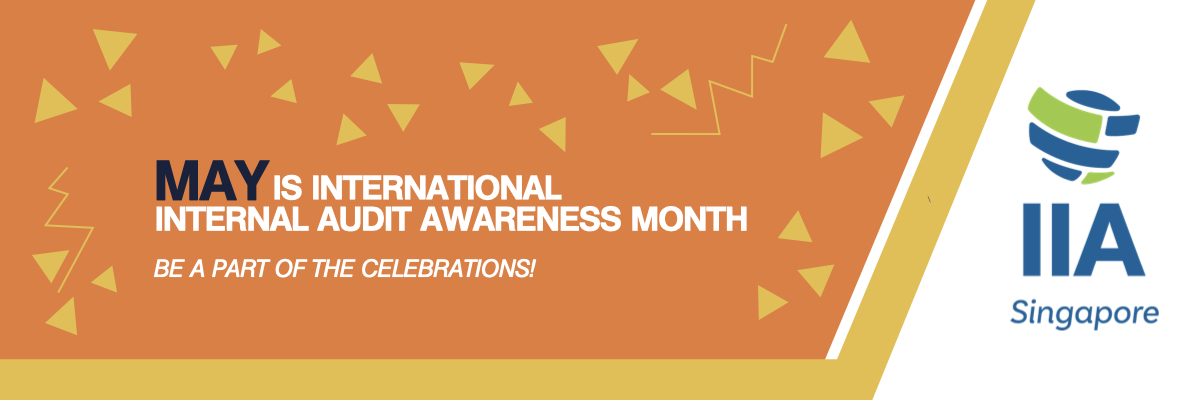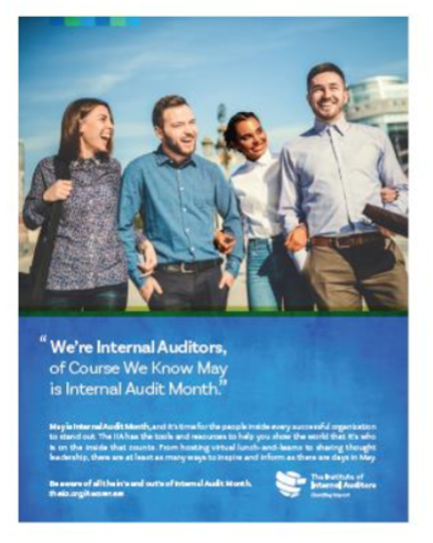Celebrating the Impact of Internal Audit

An internal audit crisis?
Let us address the elephant in the room. In some organisations, internal audit faces an identity and existential crisis. We have been labelled as the internal policeman, fault finders, the compliance folks, and even mistaken as accountants. Have you been asked lately what you do as an internal auditor? It would not be surprising if most employees cannot distinguish between the roles of an internal and external auditor or know what the primary focus of internal auditors’ work. And internal audit managers, have you encountered challenges in hiring internal auditors recently? Is our pool of internal audit talent drying up?
Despite these challenges, internal auditors are taking on more vital work today to support organisations. We help identify blind spots, improve governance, provide recommendations addressing root causes, and offer assurance to senior leaders that processes and internal controls are effective. We are trusted advisors to the audit committee and senior management, acting as change agents to drive improvement. Ultimately, like our colleagues, we share a common goal: to help our companies achieve success.
A call to action
What is the issue then? We often excel in conducting audits but fall short in promoting our value and strengths. Additionally, quantifying our impact in preventing major risks from materialising proves difficult. The solution seems apparent: We must be more visible and celebrate the positive impact of our work to enhance our influence, both internally within our organisations and as a profession. And what better time to do so than during Internal Audit Month! The IIA initiated this tradition in the 1990s, dedicating the month of May to champion our profession and foster greater appreciation for our work. The IIA has developed a marketing toolkit, which you can access it here. IIIA Singapore has also planned a series of events that you should watch out for - details can be found on their website.
 |
There are several ways to enhance our impact within our organisations. Suggestions from The IIA include: -
|
Embracing continuous improvement
As we strive to showcase our value to organisations, it is also important to reflect on our existing practices. Here are some considerations:
- People – What trainings can our auditors undergo to enhance their skill sets and provide valuable insights in emerging risk areas? How can we support our auditors in building successful and rewarding careers?
- Process - Can we be more involved in strategic areas to remain relevant? How about developing an annual report for our key stakeholders, showcasing the contributions and achievements of internal audit in the past year?
- Technology – Can we add more value by leveraging data analytics, using generative artificial intelligence for risk assessments, or developing interactive audit reports?
In this era of permacrisis, what sufficed before may not be adequate now. It is crucial to seek continuous improvement by critically examining our outputs. Not progressing means effectively moving backward in this environment. And finally, let us also take this opportunity to celebrate our audit team members. After all, it is our talented people who uphold and elevate our reputation within the organisation.
To all the internal auditors out there, happy Internal Audit Month! #IIAMay
Gary Teo currently leads the internal audit department at Airwallex, a financial technology company headquartered in Singapore and is a Board member of The Institute of Internal Auditors Singapore.
The Institute of Internal Auditors Singapore blogs reflect the personal views and opinions of the authors. These views may differ from policies and official statements of The Institute of Internal Auditors Singapore and its committees and from opinions endorsed by the bloggers’ employers.



